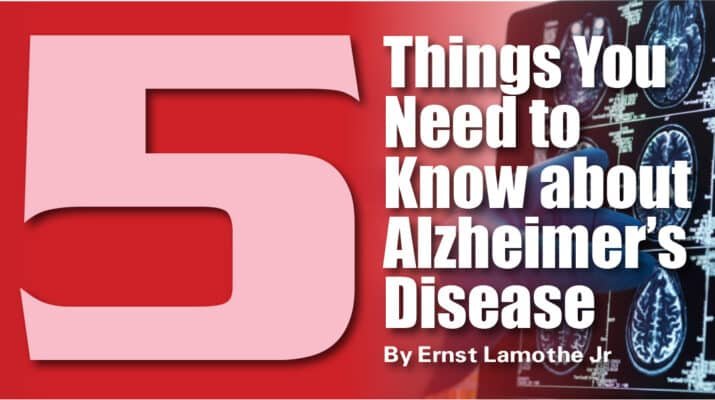By Ernst Lamothe Jr

As the prevalence of Alzheimer’s disease continues to rise, affecting millions worldwide, the urgency for effective treatment and support becomes increasingly critical.
This neurodegenerative disorder, characterized by memory loss and cognitive decline, poses significant challenges not only for patients but also for families and caregivers.
Recent research highlights the importance of early diagnosis, innovative therapies and lifestyle interventions that may reduce risk factors. With advancements in understanding the disease mechanisms and promising clinical trials underway, experts emphasize the need for heightened awareness and community support to navigate the complexities of Alzheimer’s and improve the quality of life for those affected.
“This is one of those health conditions that doesn’t discriminate,” said Arlene A. Wilson, senior director of programs at Rochester/Finger Lakes Chapter. “It hits every ethnic group, city and suburban residents and every economic class. This is why everyone needs to know about it because you never know the warning signs and if it will hit your family.”
1. Common symptoms include confusion about time and space
The most common symptoms of Alzheimer’s disease include memory loss, confusion about time and place, difficulty with problem-solving and planning, challenges in completing familiar tasks, changes in mood and personality and trouble with language. These symptoms can severely impact daily life, making it difficult for patients to manage daily activities, maintain relationships and live independently.
“If you know one person with Alzheimer’s then you know one person. Everybody is different and will experience different symptoms and behaviors,” said Wilson. “Some will have problems with directions, some will make poor judgments, some will wander off and others will be misled or taken advantage of.”
2. Exact cause is not yet fully understood
Alzheimer’s disease is characterized by the buildup of amyloid plaques and tau tangles in the brain, leading to neuronal damage and cell death. The exact cause is not fully understood, but factors such as inflammation, oxidative stress and disrupted blood flow may contribute to its development. Genetic factors and lifestyle choices also play a role in disease progression.
“We know there is a buildup of protein in the brain,” said Wilson. “Because dementia is the overreaching category that Alzheimer’s falls under, there are many factors and conditions that occur when regular brain cells are destroyed.”
Diagnosis typically involves a combination of medical history evaluations, cognitive tests, neurological exams and brain imaging such as MRI or PET scans, Wilson added. Biomarker tests, including cerebrospinal fluid analysis, can also help. While these tests can be accurate, definitive diagnosis is often made through the process of elimination and observation over time.
3. Your lifestyle does matter
Preventive measures to reduce the risk of Alzheimer’s include maintaining a healthy diet like the Mediterranean diet, regular physical activity, cognitive engagement and social interaction. Managing cardiovascular health by controlling blood pressure, cholesterol and diabetes may also reduce risk.
“Your lifestyle does matter. We emphasize exercising, good nutrition and making sure your blood pressure is stable,” said Wilson. “We also understand the importance of quality sleep because sleep is restorative. It helps reduce the buildup in proteins and gives the brain an opportunity to reset. We advocate being socially engaged, having friends and visiting people because that is also good for the brain.”
4. Family history means a higher likelihood of developing the disease
Genetics plays a significant role in the risk of developing Alzheimer’s. While most cases are sporadic, specific genes can increase risk. A family history of Alzheimer’s can indicate a higher likelihood of developing the disease, particularly in early-onset cases.
“There is genetic testing today that can educate you about whether you have a genetic link,” said Wilson. “But just because you have the genetic precondition doesn’t mean you are going to get it. If you exhibit the positive lifestyle behaviors that we talked about you can significantly reduce the risk.”
5. African Americans and Latinos more prone to the disease
Alzheimer’s prevalence and characteristics can vary among different populations and demographics, influenced by factors such as genetics, lifestyle and access to healthcare. Research has shown variability in disease progression and symptom expression among various ethnic and racial groups, indicating a need for tailored approaches to care and research.
“Alzheimer’s affects twice as many African Americans and one and a half as many in the Latino community,” added Wilson.
She also gives advice to those who are taking care of their loved ones.
“It is difficult to see someone you care about go through this condition. I would say if all of a sudden they think you are Aunt Sally then don’t correct them just redirect them. Just be Aunt Sally today and talk to them about what is going on outside or whatever is on their mind. Just roll with it and continue to have a conversation with them and help them through the process.”

